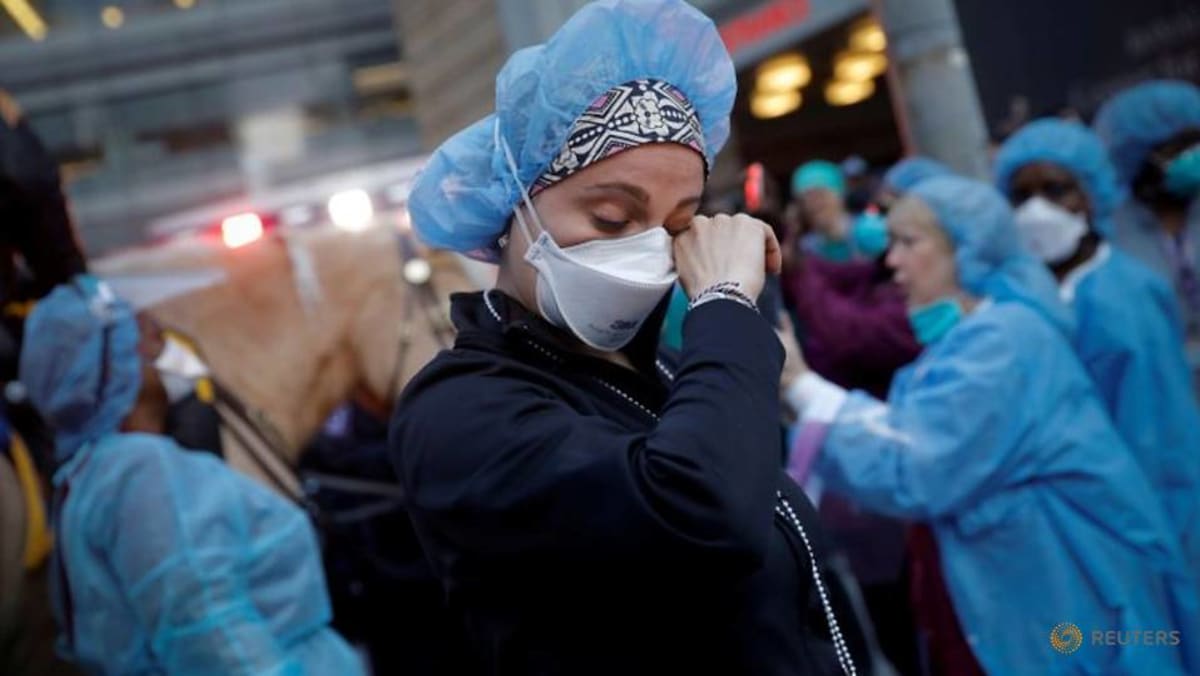Three years on, COVID-19 is a learning experience for the next pandemic: Experts
Research has shown high disparities between rich and developing countries in terms of access to vaccines and other resources.
High-income nations had vaccination rates of 75 to 80 per cent in the first year that vaccines were made available, while low-income countries had an average of under 10 per cent, according to research publisher Frontiers.
When it came to implementation, Dr Adalja said that more deaths could have been prevented if authorities were better prepared, and took better measures.
“In the United States and many western countries, two to three months went by before any action was taken. And when action was taken, it was very disruptive, very blunt, and that caused people to rebel against it,” said the senior scholar at the Johns Hopkins University Center for Health Security.
“When the next infectious disease emergency occurs, it is critical to have good public health communication and to be proactive so that policymakers aren’t left with just blunt tools, that they’re able to do things that are targeted, that are minimally disruptive,” he added.
DEBATE OVER COVID-19 ORIGINS
The world is turning its attention to pandemic-proofing the future, even as the debate over the origins of COVID-19 rages on.
“The biggest lesson we need to take from this pandemic is that just because the last big pandemic was a hundred years ago – the Spanish flu – it doesn’t mean that the next pandemic isn’t just around the corner,” said Prof Senanayake.
Hence, getting to the origins of COVID-19 is crucial for how the world can prepare, said Dr Adalja, calling for authorities to be transparent.
Opinions have been rife over how COVID-19 started – whether from a laboratory, or naturally from animals to people.
“If this was an animal spillover event, we need to understand what that animal was, and we may have to adjust our behaviour with respect to that animal. We may have to fortify wet markets so that they’re not places where viruses can spill into humans,” said Dr Adalja.
“If it was a lab leak, we have to understand what biosafety breach breaches occurred at that lab and how to prevent that from happening because it’s very important that people continue to do research on deadly viruses, but we want to make sure it’s being done safely,” he added.
Medical professionals expect that COVID-19 will not be eradicated. Instead variants will continue to evolve as with other respiratory viruses, albeit at a lower rate and causing less severe illnesses.
Dr Adalja said that COVID-19 will become increasingly manageable as science and medicine evolve, but cautioned that those at higher risk should seek immunity through vaccination.
PANDEMIC-PROOFING THE FUTURE
Experts say it is not a matter of how, but when, the next pandemic hits, and Dr Adalja believes it will likely be a virus of avian origin.
“We have to be proactive. We have to start thinking about vaccines and antivirals and tests for influenza because it’s not something that is in any kind of doubt, we’re going to see another bout of influenza pandemic,” he said.
The World Economic Forum cited a growing global population and spreading urbanisation as contributors to higher risks of zoonotic diseases – which are spread from animals to humans, while scientists have warned that glaciers melting due to climate change can release viruses and bacteria.
Prof Senanayake said that countries need to stop the punishment and stigma of those who do the right thing by acknowledging a disease outbreak.
China, for example, could have announced its concerns about COVID-19 earlier but the international body needs to ensure that the country does not suffer for it or get discriminated against, the infectious diseases specialist said.
He called for a “global insurance fund” to aid countries that suffer losses after reporting on disease outbreaks, saying that if nations do not share information and future pandemics get out of hand, it will cost the world even more in both dollars and lives.
For all the latest world News Click Here

